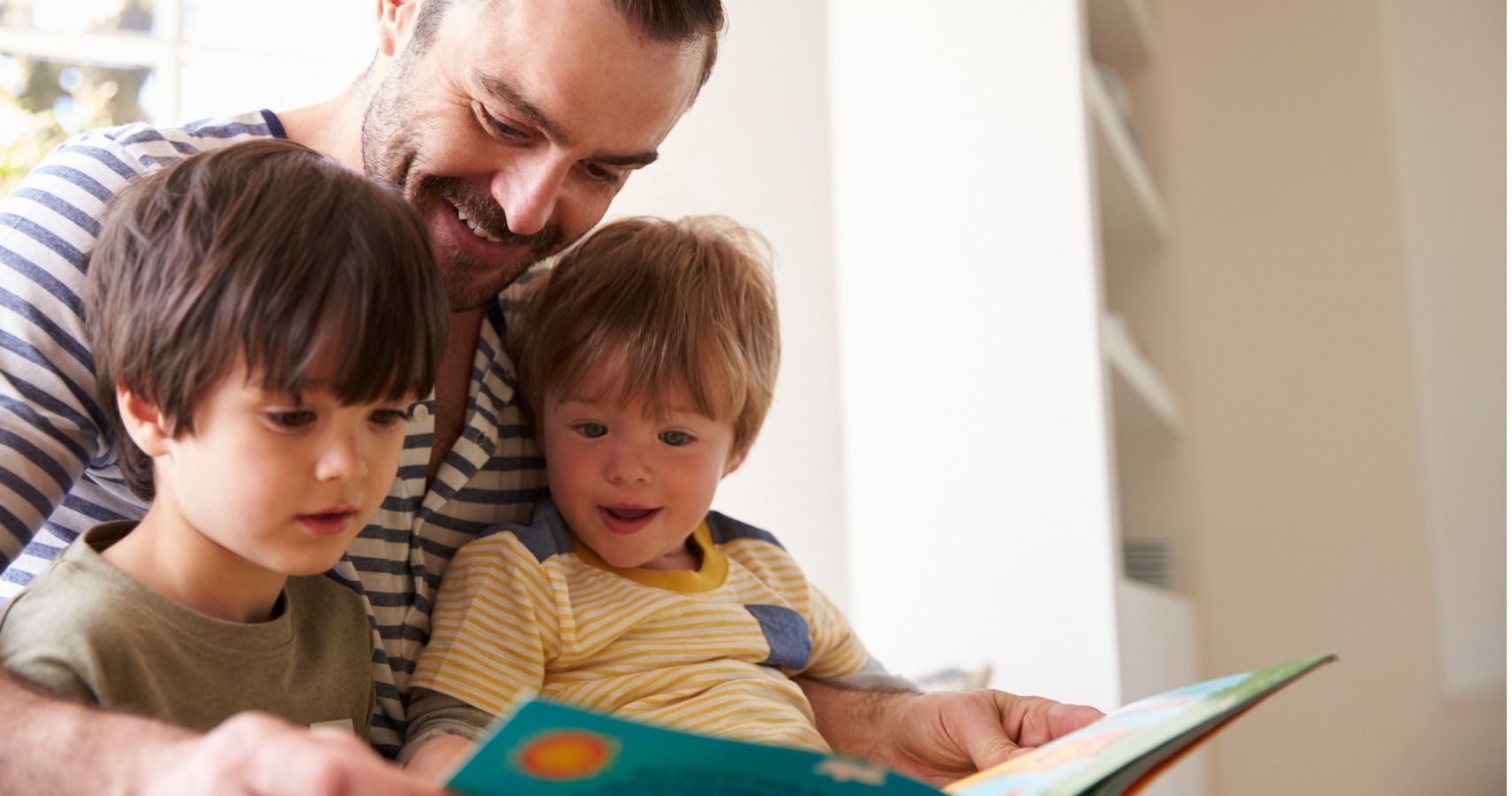Every parent knows that spending time reading to and with your kids is important, but not all them know how they choose to read is also important. Many adults love the convenience of being able to read on their phones or tablets or e-readers — it allows them to read anywhere at any time without having to lug a heavy book around with them and also allows them to instantaneously begin a new book if they happen to finish their current book while out or commuting. With so many adults reading e-books it's no surprise that parents are embracing electronic books for their children as well, but a new study is showing that kids aren't benefiting as much from those e-books as they are with traditional print books.
Researchers at the University of Michigan found that while e-books may be more convenient for parents, they don't encourage the same level of interaction with children as traditional print books do. The findings, published in a recent issue of the journal Pediatrics, finds that the old standard print book simply encouraged more discussion between parents and kids than e-books do.
PREVIOUSLY: Reading The Same Book To Your Child Will Make Them Smarter
“Shared reading promotes children’s language development, literacy and bonding with parents,” lead author Tiffany Munzer, M.D. said in a news release. “… We found that when parents and children read print books, they talked more frequently and the quality of their interactions was better.”
To come to this conclusion, the researchers conducted a small study of 37 pairs of parents of 2 or 3 year-olds. The families would each read a popular children's book in different formats that included a standard print book, a basic electronic book and an enhanced electronic book which had features like sound effects.
The results of the study found that parents engaged with their children significantly more when reading the print books, often asking questions to their children about the story and asking for their opinion..
The study found that with the e-book format there was less interaction and much of the interaction that was had was more about the e-book device than the actual story. The children also engaged more when reading the print book than when reading the electronic versions, perhaps because there were fewer distractions and the parents were more engaged.
Dr. Munzer suggested that when reading print books, parents talk to their children more and prompt them for input, which encourages interaction. “Parents strengthen their children’s ability to acquire knowledge by relating new content to their children’s lived experiences,” Dr. Munzer said. “Research tells us that parent-led conversations (are) especially important for toddlers because they learn and retain new information better from in-person interactions than from digital media.”
While e-books are definitely convenient and the encouragement of all reading is great when it comes to kids, it seems that traditional picture and story books are still the best way to encourage child development. “Pediatricians should help parents understand that enhancements often found in electronic books will not help child development as much as enhancements provided by parental interaction,” the study stated.
READ NEXT: When To Actually Worry That Your Kid Still Can't Read

